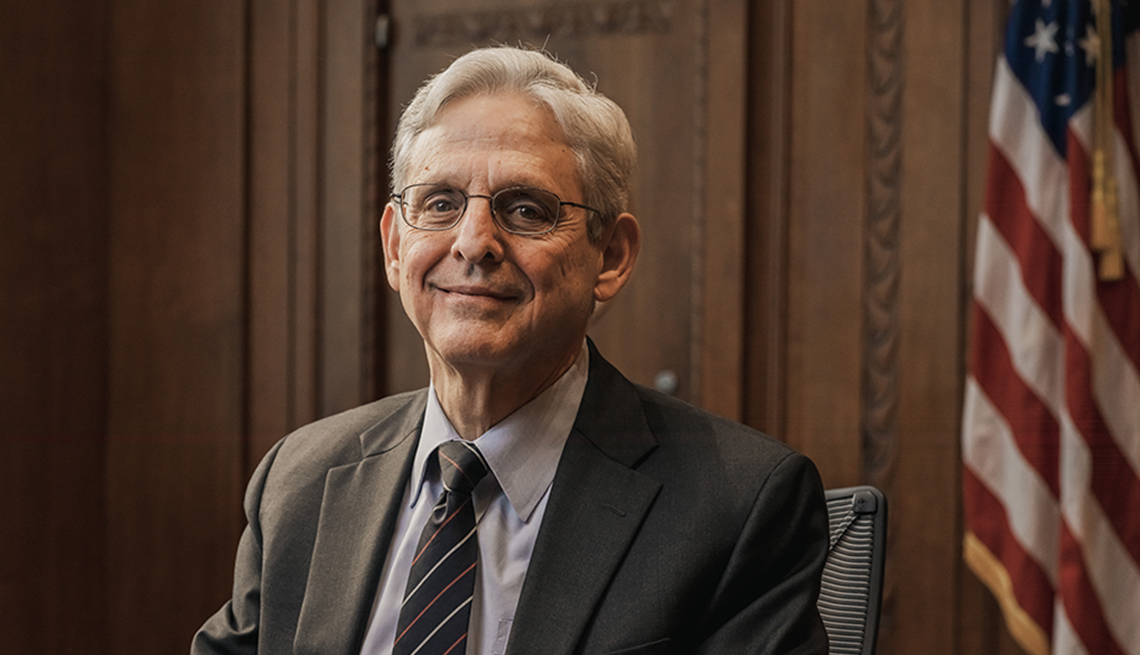
- Select a language for the TTS:
- UK English Female
- UK English Male
- US English Female
- US English Male
- Australian Female
- Australian Male
- Language selected: (auto detect) - EN
Play all audios:
One thing is for certain: Many Americans are fed up with having to contend with the constant barrage of emails, texts and phone calls from criminals maneuvering to steal their money through
ever-evolving and often highly sophisticated schemes. It’s “overwhelming,” agreed Attorney General Merrick B. Garland, 70, during a recent interview with AARP at the Department of Justice
(DOJ) about what the federal government is doing to fight fraud — which is often aimed at older adults. He said that while the DOJ is dedicated to the effort, it’s challenged by the fact
that these crimes are “innovative and constantly changing.” Here’s more from our discussion with Garland. (The interview has been edited for brevity and clarity.) Attorney General Merrick B.
Garland photographed on Feb. 2, 2023. Greg Kahn WE ARE ALL COMPLETELY OVERWHELMED BY ATTEMPTED SCAMS, AND SOMETIMES IT FEELS LIKE LAW ENFORCEMENT IS NOT REALLY DEALING WITH THE PROBLEM
EFFECTIVELY. DO YOU AGREE? Well, I think that the pernicious attempt to target older Americans _is_ overwhelming. There’s no doubt about that. And so we are mounting resources in response to
that. We have 20 U.S. Attorney’s Offices assigned to the DOJ’s Transnational Elder Fraud Strike Force, and more than 70 prosecutors specifically assigned to the Health Care Fraud Unit,
which is very much involved in Medicare fraud as well. We’ve established a hotline for people who suspect fraud [see box above] to call in to get advice, to get support and to get
recompense, where we are able to get that. I think there is a large problem, and we are responding with a large reaction. But from the point of view of any individual older American, it can
certainly be overwhelming. People are calling and asking for your Social Security number or your Medicare number. They’re telling you that your grandchild is under arrest somewhere and needs
money for bail. AARP EMPHASIZES THE NEED FOR FRAUD VICTIMS TO REPORT THESE CRIMES. Yes, I urge reporting. But prevention is the very first thing. You’re dealing with experts here, and the
best solution when dealing with a potential scam attempt is to _slow it down_. Nobody should be calling you out of the blue and asking you for your Social Security number. Nobody should be
calling you out of the blue and asking you for your checking account number. Nobody should be calling you out of the blue and asking for your email address. WHAT ARE SOME OF THE LATEST
FRAUD-FIGHTING CHALLENGES THAT CONCERN YOU MOST? Unfortunately, crime is innovative and constantly changing. This is a problem for us and a problem for everyone. People use the word “crypto”
as if it’s a magic thing, and we’ve seen recently that it’s not so magic. But it sounds cool and high-tech. There’s no such thing as a free lunch. If somebody says they’re going to give you
20 percent interest every year and guarantee it, it probably is a Ponzi scheme. Secondly, people may try to get you to convert your money into cryptocurrency and then send it somewhere.
There is no reason that most older Americans need to trade in crypto; checking accounts and cash and credit cards are fine. Another area that we are a little bit worried about is criminals
using innocent people as a cutout [or money mule] to transfer money back to a foreign country. So if some foreign criminal perpetrates fraud in the United States, they don’t want the money
transferred directly back to them. So they make some calls and say, “We’ll pay you $20 if you will just put this money in your bank account and then transmit that amount of money to our bank
accounts. It’s free money for you. We’ll give you 20 percent or 30 percent.” And that’s a way of money laundering.




